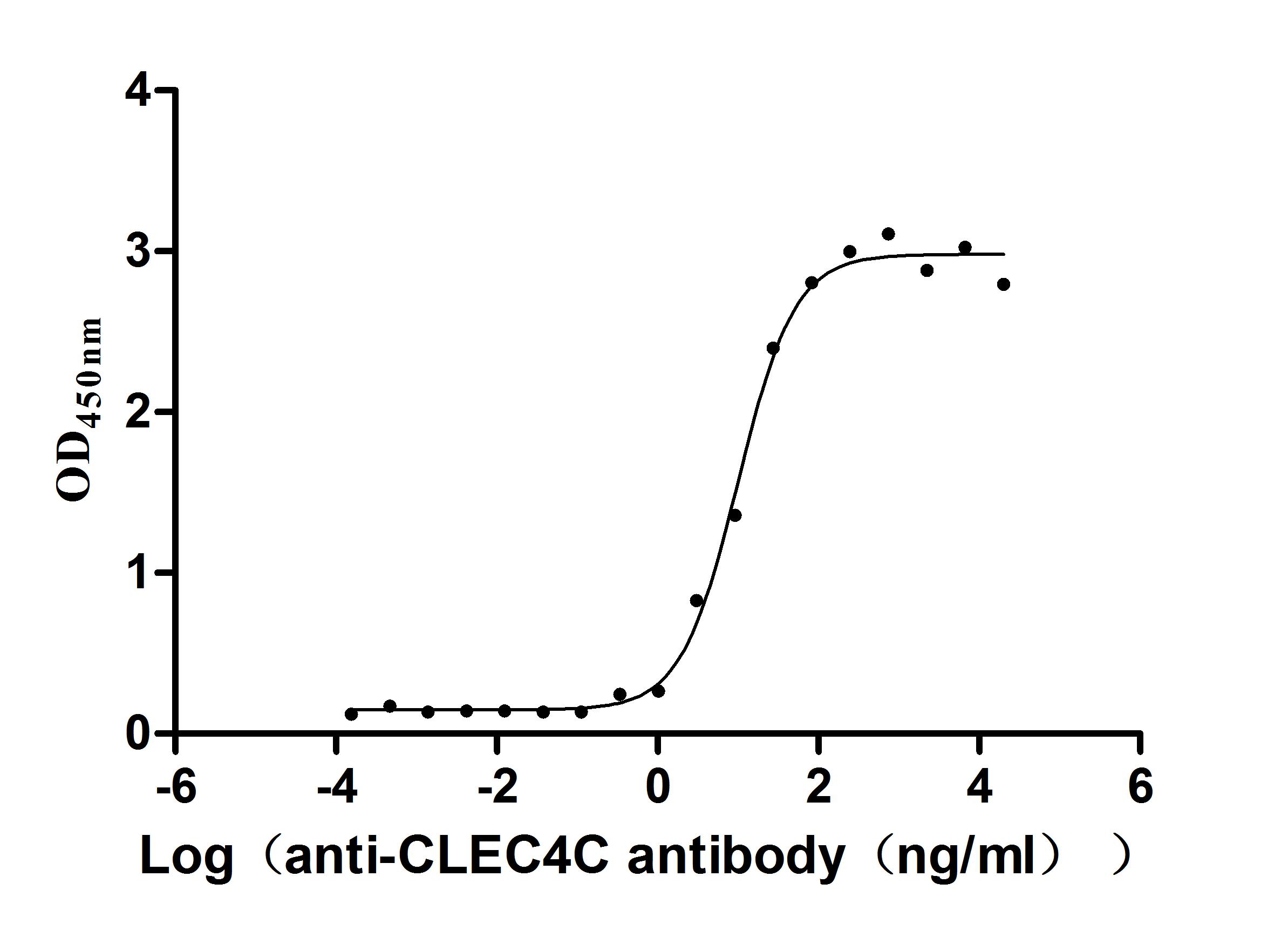The CLEC4C recombinant monoclonal antibody was produced through a series of steps. Initially, the CLEC4C antibody genes were incorporated into plasmid vectors. These engineered plasmid vectors were subsequently introduced into appropriate host cells, utilizing exogenous protein expression technology to enable antibody production. Following this, the CLEC4C recombinant monoclonal antibody underwent purification using affinity chromatography and underwent thorough validation for its suitability in ELISA assays. During functional ELISA testing, it was established that this CLEC4C recombinant monoclonal antibody demonstrated a strong binding affinity for the human CLEC4C protein (CSB-MP855470HUh7) at a concentration of 2 μg/mL, with an EC50 falling within the range of 7.658 to 12.99 ng/mL.
CLEC4C is primarily expressed in the liver and lymph nodes and plays a significant role in the immune system. The main function of CLEC4C protein is to serve as a pattern recognition receptor in the immune system, helping to recognize and respond to pathogens by binding to their carbohydrate structures. CLEC4C also plays a role in antigen presentation, immune regulation, and cell adhesion.






